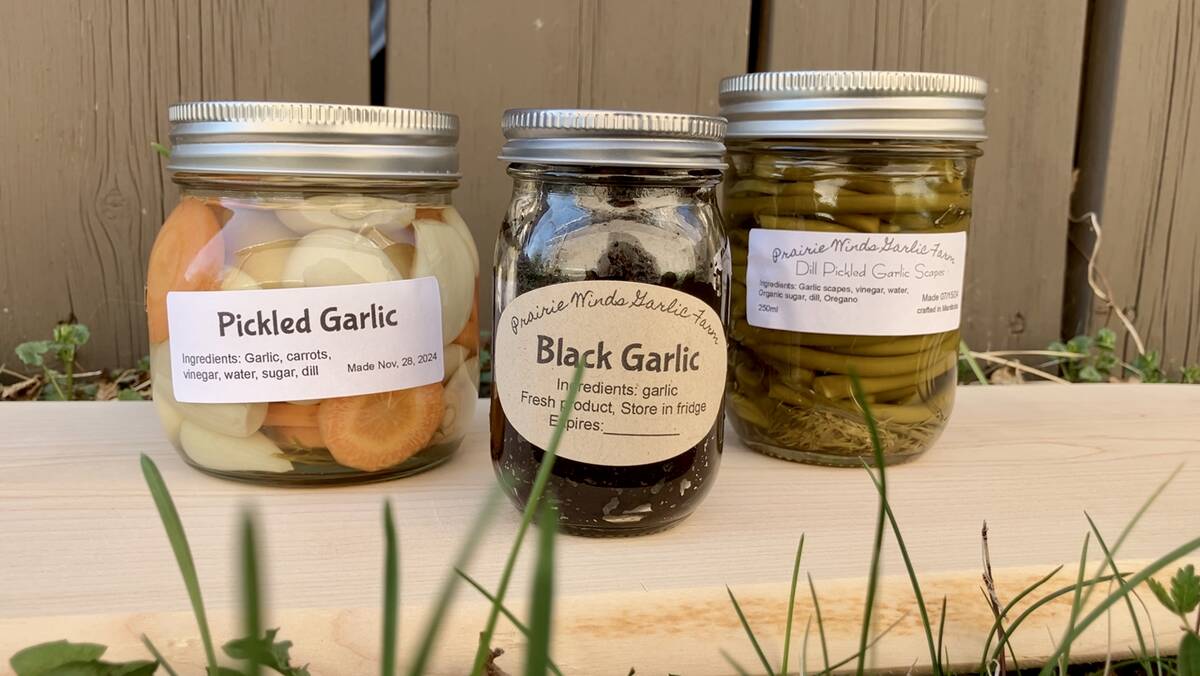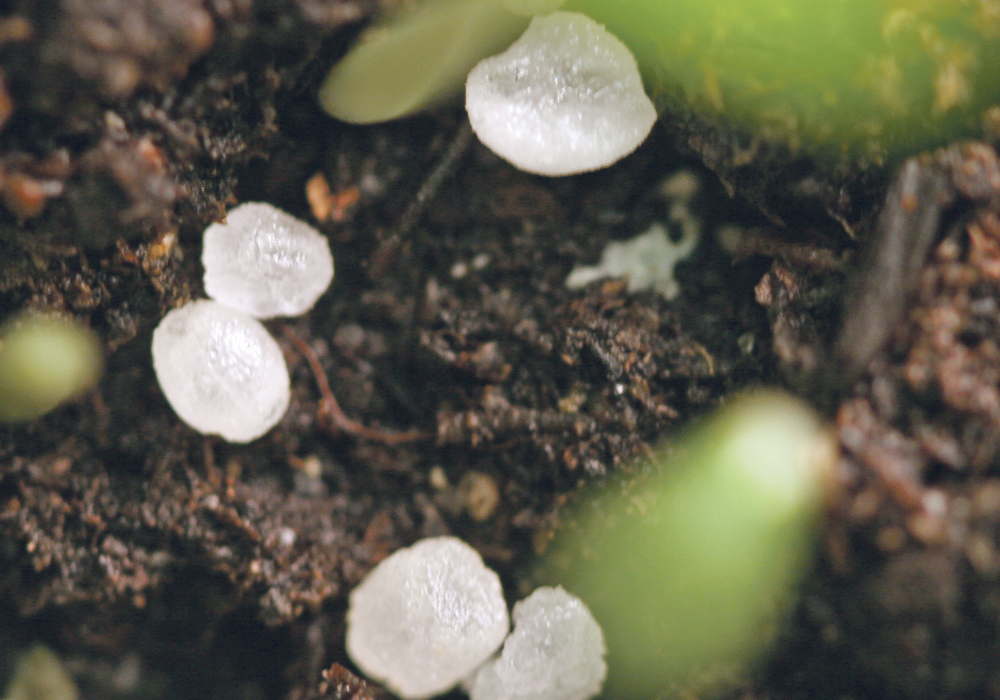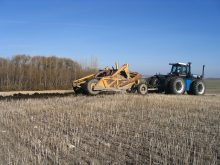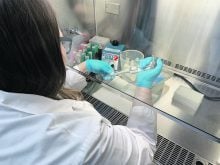SAN ANTONIO, Texas — The manufacturer of a new microbial believes it has a product that will eventually completely displace synthetic nitrogen fertilizer.
Pivot Bio held a news conference at the 2020 Commodity Classic conference announcing the findings of its 2019 university and on-farm field trials for Pivot Bio Proven, a new biological nitrogen product for corn.
The product, which was commercialized in the United States last year, is capable of replacing 25 pounds per acre of synthetic nitrogen, said Mark Reisinger, vice-president of commercial operations.
The biological product takes nitrogen from the air, makes ammonia and excretes the ammonia on corn roots.
Read Also

Growing garlic by the thousands in Manitoba
Grower holds a planting party day every fall as a crowd gathers to help put 28,000 plants, and sometimes more, into theground
The nitrogen produced by the biological is 100 percent available to the corn plant compared to about 50 percent for conventional fertilizer products.
“This is nitrogen that doesn’t leach. You don’t lose it,” said Reisinger.
The company will be field-testing the second generation of the product in 2020, which displaces 50 lb. of nitrogen per acre.
A typical corn operation uses 170 to 200 lb. per acre of synthetic nitrogen. Reisinger said Pivot Bio “sees a route” to completely displacing conventional fertilizer.
Josh Linville, fertilizer analyst with INTL FCStone, said the product sounds too good to be true. A product that effectively pulls nitrogen from the air is the holy grail of the fertilizer industry.
“Maybe they’re onto something. Maybe they have figured it out. If they have, then it’s definitely going to be something to start investing in because they’re going to do really, really well for themselves,” he said.
“If there was ever a product that makes it to where the application of nitrogen isn’t needed, I mean, that upends the entire nitrogen sector.”
Clyde Graham, executive vice-president of Fertilizer Canada, said the organization doesn’t comment on the value of specific branded products.
“There is a wide range of innovative products that are coming into the marketplace,” he said.
“But we are confident that (nitrogen) fertilizer will remain the foundation of world food production.”
Graham said the Canadian Food Inspection Agency regulates the safety but not the efficacy of new fertilizer products, so farmers need to do their research.
He said agri-retailers and certified crop advisers are trusted sources of information.
Pivot Bio intends to conduct field trials of its corn product in Canada in 2021 pending regulatory approval. And it plans to introduce a similar product for another important cereal crop.
“We’d love to commercialize both corn and wheat as quickly as possible but we need to do our due diligence,” said Reisinger.
Pivot Bio Proven can also be used as a yield-enhancing product. Field trials conducted on nearly 100 commercial farms in 2019 showed a positive yield response on 76 percent of the operations. The average yield bump was 5.8 bushels per acre compared to fields using only synthetic fertilizer.
That finding was backed up by studies conducted at six universities. The six institutions were Iowa State University, University of Arkansas, University of Nebraska, University of Illinois, Kansas State University and University of Minnesota.
The Pivot plots had an advantage over synthetic nitrogen plots 89 percent of the time. The average yield gain was six bu. per acre when the Pivot product was used in conjunction with typical nitrogen rates.
Linville said it will be interesting to see how the economics pan out compared to conventional fertilizer products.
Using a $3.75 per bu. corn price and a 5.8 bu. per acre yield bump results in a $21.75 per acre advantage. The manufacturer suggested retail price for the product is $20 per acre.
Scott Henry, an Iowa soybean grower who tested the product in 2019, said he saw a yield bump ranging between six and 20 bushels per acre on his farm. But he isn’t interested in the product for its yield advantage.
“Our whole vision and our goal with this product is to look at how we are managing the nitrogen use in our crop,” he said.
Henry wants to reduce the farm’s reliance on synthetic nitrogen fertilizer products, which are under the environmental microscope in Iowa.
In addition to testing the product for yield using traditional rates of synthetic fertilizer, he tested it to see how much he could reduce his application of anhydrous ammonia.
Henry figures he could reduce his anhydrous use by 20 to 25 lb. per acre without compromising yields.
He was impressed by the results and plans to use the product on all of his corn acres in 2020, up from the trial of 120 acres in 2019.
“We need more wins in this area,” said Henry.
Dan Poston, agronomy director at Pivot, visited about 200 of the trial sites in 2019 and noticed a visible difference in about half of the fields using the product. The plants were taller, greener and had larger roots.
He went back to those locations when the plants were reaching maturity and collected plant mass from treated and untreated fields.
The plants in the treated fields were 21 percent larger and contained 38 lb. per acre more nitrogen than the plants in untreated fields.
Poston said the product also increases yield stability. Yield variances can occur across fields due to differences in soil types and uneven ground.
Pivot Bio Proven adheres to the roots of a plant and does not wash away or volatize into the air.
“Every field has spots that lose nitrogen to leaching, runoff or denitrification,” said Poston.
“Pivot Bio Proven may be especially effective in these less productive areas of fields because it provides a constant source of nitrogen directly to the plant roots.”


















